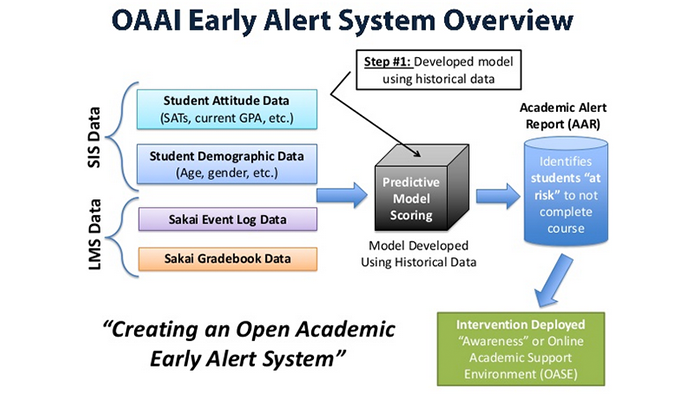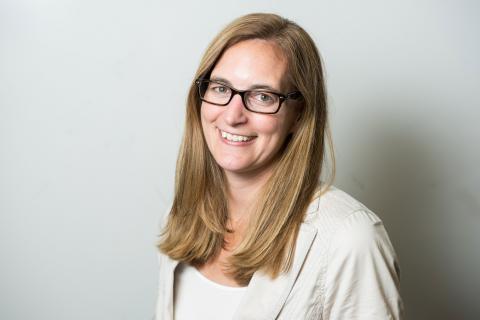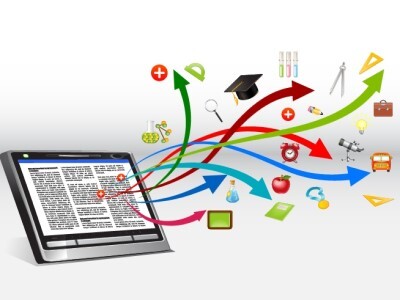Early investments by NGLC in learning analytics are going global
Topics

Educators increasingly rely on education technology tools as they shift instruction, redefine teacher roles, and design learning experiences that reflect how students actually learn. Technology should never lead the design of learning. But when used intentionally, it can personalize instruction, enrich learning environments, and help students master critical skills.
Two NGLC higher education tech innovation projects are continuing to develop their learning analytics efforts, reaching more institutions across the nation and across the pond.

Two NGLC higher education tech innovation projects are continuing to develop their learning analytics efforts, reaching more institutions across the nation and across the pond.
In London in early June, Jisc, a charity organization that supports and provides IT services to higher ed in the United Kingdom, announced they will adopt the following open-source components built from NGLC-funded efforts from Marist College and Sinclair Community College:
- A Learning Analytics Processor, which is based on Marist’s Open Academic Analytics Initiative (OAAI)
- An Open-Source Intervention System, which is Sinclair’s Student Success Plan (SSP)
- An Open Dashboard
- An Open Learning Record Store (OpenLRS)
“We will be working with the Jisc over the next year to further develop these components into a cloud-based service offering,” says OAAI project-lead Joshua Baron, assistant vice president for information technology for digital education at Marist College. “They will then make it available to UK higher education institutions as part of their learning analytics initiative.”
Marist College received funding for the Open Academic Analytics Initiative (OAAI) from NGLC in 2011. With their project, they developed and tested OAII across four colleges in the U.S. to understand how learning analytics can best be scaled to new locations effectively. Through the Apereo Foundation’s Learning Analytics Initiative, Marist continued to work with other institutions and commercial affiliates to develop this open platform for predictive analytics.
Sinclair Community College used its NGLC funding to release the Student Success Plan as an open-source product, build a replicable implementation model at other institutions, and introduce a new component—My Academic Plan—to help students stay on track with their degree program.
“Without the initial support that was provided for both OAAI and SSP by NGLC and the Bill & Melinda Gates Foundation,” continued Baron, “we'd never be at this point with the work. All of us are very excited to see this open-source technology now being adopted and deployed on a national scale!”
Learn more about the Jisc announcement through the press release.
Another learning analytics project gets further investment at its home institution
Ongoing success continues for E2Coach, a project that emerged from the Physics department at the University of Michigan. NGLC provided funds for project lead and faculty member Tim McKay to convert an open-source health communications analytics technology to customize supportive messages and academic recommendations to each student in large-enrollment undergraduate physics courses. According to a recent Campus Technology article, the university is investing $1.4 million to expand E2Coach and another system called the Student Explorer Advising program so that more students at the university may benefit.
And IPAL gets approval from Moodle and develops an iPhone app
The success continues with Eckerd College’s in-class polling technology, IPAL. Project lead Bill Junkin reports that, “The Moodle organization has designated the IPAL module as an approved module that can be added to the Moodle program at any school that uses Moodle as their Learning Management System. The web site that Moodle has created for IPAL is available on Moodle's site.” The module has already been downloaded over 100 times, suggesting broad scale use of this innovative tool.
But that’s not the only way faculty and students can access IPAL to communicate understanding of classroom material. Students at DePauw University who developed the IPAL Android app during the grant period have since reached two incredible milestones: they graduated and they completed development of an Apple iPhone app. It’s now available in the App Store for free download.
“The work funded originally by the grant has continued and will impact more and more students in the years to come,” shared Junkin.




